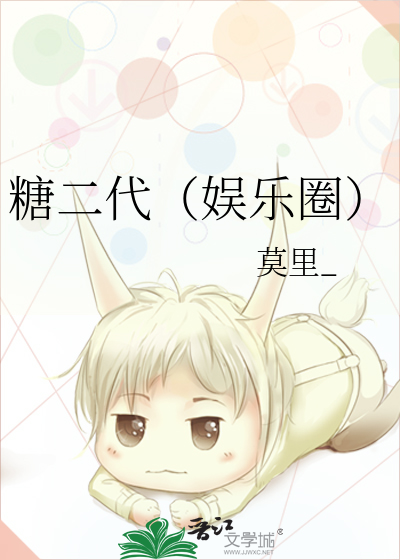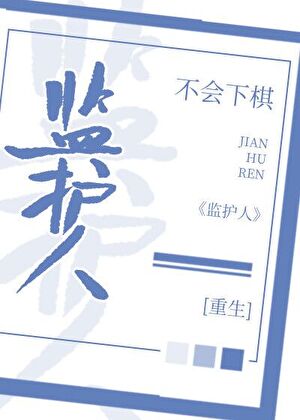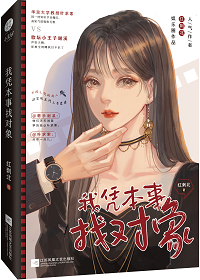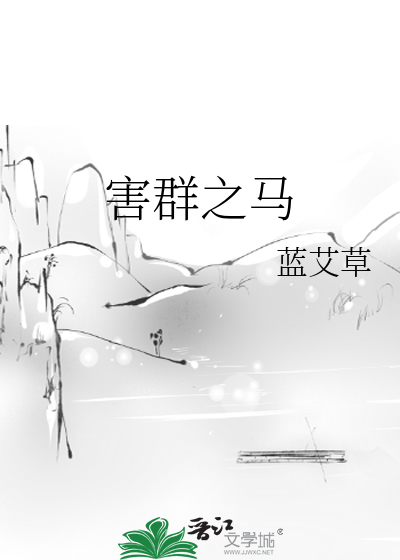Could Qi Kai's words have had another purpose? If it had been in those first few years, Qi Fang would never have considered it.
Back then, he was lost in his own emotions, indifferent to everything, his mind occupied only by his teacher and this seemingly endless, bleak world.
Yet no matter how harsh the world was, there was at least one good thing—it led him to Yan Xue amidst the endless snow.
Later, the wind ceased, the snow cleared, and no matter how difficult the path became, he was no longer walking it alone.
Over the years, his heart had settled, and he gradually began to suspect that there might have been other reasons behind what happened back then.
But even if he guessed, could he truly let it go? Qi Kai could have spoken to him properly. Had he understood the gravity of the situation, he would have known how to choose.
Yet Qi Kai had chosen that method—proof that he still saw Qi Fang as nothing more than a reckless child, not family.
And had Qi Kai truly not harbored even a sliver of that thought back then? Returning at such a time only added to the chaos.
What he never expected was that, though he had never voiced these feelings, Yan Xue still understood…
That girl had a way of making you think you were already fortunate, only to show you that you could be even luckier.
The resentment lodged in Qi Fang’s chest suddenly dissipated. He strode inside and stood beside Yan Xue. "I’m back late."
His long coat, damp with the cold from outside, brushed his knees, but his voice was warm—no longer the stubborn youth Qi Kai remembered.
Qi Kai couldn’t help but stand, calling out, "Xiao Fang," his gaze fixed, his tone even tinged with hesitation.
The last time he had gone to the machinery factory to see him, Qi Fang had left the moment he spotted him, only sending a note telling him not to come looking again. He hadn’t even gotten a proper look at him.
But that softness wasn’t meant for him—it was for the girl sitting at the table. When she looked up, her eyes held a smile. "Not late at all. We’ve only just started talking."
Qi Fang took off his coat and hung it up, leaving only a sweater over his shirt. He met Qi Kai’s gaze. "I made myself clear in the note."
His tone was surprisingly calm, and he stood half a head taller now, the contours of a young man replacing the boy he had been.
This younger brother had grown up without any of them noticing—gaining a family, even a child. Qi Kai felt a complicated pang.
But Qi Fang didn’t give him time to dwell. "If you just came to see for yourself, you’ve seen it. I’m doing fine. No need for your concern."
Not a word about how hard things had been for him back then, making Qi Kai glance involuntarily at Yan Xue.
Qi Fang caught that look immediately. "And don’t think of asking her to persuade me. She’s the one who’s always treated me most like family."
The absolute protectiveness in his tone made Qi Kai realize he’d been overthinking things.
This couple understood and trusted each other completely—what did that long-abandoned childhood engagement with the Yan family have to do with anything?
If anything, he was the outsider here. After a pause, he said quietly, "I’m sorry about what happened back then."
An apology—one Qi Fang had only received on his deathbed in the original story.
After all, what had stood between them back then wasn’t just Su Changqing, but also their father’s final moments. Some knots only tightened with time, becoming impossible to undo.
Yan Xue glanced at Qi Fang, but his reaction was subdued—just a quiet "Mm," followed by, "I know."
This only made Qi Kai feel even more unsettled, especially after hearing Yan Xue’s words and finally understanding what had been weighing on Qi Fang’s mind.
Yet he couldn’t defend himself. Whether it was because Qi Fang had spent years away beyond the frontier or simply because he hadn’t made the effort to understand, the truth was that he had instinctively excluded Qi Fang back then.
After a long silence, he finally softened his voice. "Dad’s always been worried about you—afraid you’d cling too stubbornly to your principles and take things too hard. The moment we returned, he sent me to find you. If you have time, go see him. This was my fault, not his."
He glanced toward the opposite room, where faint laughter could be heard. "Let Dad see for himself that you’ve grown up—that you have a family now, and a child of your own. He’d be overjoyed."
Qi Fang, however, fell silent before responding, "Now that you and Dad are back, do you really think things are so much better?" The question caught Qi Kai off guard.
Those peach-blossom eyes—inherited from their mother but absent in him—fixed on Qi Kai as if seeing straight through him. "Some people are still in power."
Qi Kai had no rebuttal. Precisely because their situation wasn’t secure, he had only come for a visit instead of bringing Qi Fang back to Yanjing.
That place was like the eye of a storm. He and their father were already struggling to keep their footing, while Qi Fang, staying far away, was at least spared the worst of the turbulence.
And then there was that other matter—one that likely still weighed heavily on Qi Fang’s heart, a knot neither he nor their father had the power to undo.
"That business with Teacher… even though it’s been years, it doesn’t mean people have forgotten. I won’t go back for now. No need to bring you more trouble."
Of course, the conversation would circle back to this. Qi Kai studied Qi Fang, who met his gaze steadily, unwavering.
Compared to the past, Qi Fang was calmer now, but his spine was just as unyielding—still refusing to let things slide, even a little.
To ask him to muddle through life, to forget what had happened to his teacher, would be no different from breaking his backbone and his convictions.
In the end, Qi Kai didn’t press further. He sighed. "Fine. Who knows—maybe Dad and I will end up exiled again if things take a turn for the worse."
After all, it was only early 1974. The political climate wouldn’t stabilize for another two years, and no one caught in the whirlpool could predict what the future held.
That sigh seemed to drag out the exhaustion deep in Qi Kai’s soul, leaving behind an inescapable sense of powerlessness.
Yan Xue noticed Qi Fang’s gaze lingering briefly on the other man before lowering again. After a moment’s thought, she asked Qi Fang, "Where did you put the photo we took for Yan Yu’s third birthday?"
The question seemed to come out of nowhere, but Qi Fang understood. He glanced at her, then retrieved a box from the cabinet beneath the writing desk.
Soon after, he handed Qi Kai a small black-and-white photograph. "Give this to Dad."
The photo showed a family of three—a man with calm, distant eyes, a woman with a bright, smiling gaze, and a chubby, lively little boy cradled between them.
Qi Kai couldn’t help but look at Qi Fang again, but Qi Fang had already averted his eyes. Carefully, Qi Kai tucked the photo into his coat pocket. "I’ll make sure he sees it."
After finishing up, the two brothers once again fell into silence. Some rifts, once formed, are hard to mend—especially when they’re deepened by years of separate lives and experiences.
In the end, Qi Kai forced a smile. "I’ll get going then," he said, not lingering to prolong the awkwardness.
Qi Fang didn’t try to stop him either, responding with a simple "Mm." After a pause, he noticed Yan Xue rising to see their guest out, so he followed suit.
This made Qi Kai glance at Yan Xue again, his expression complicated as he murmured, "Thank you."
He was grateful—for Yan Xue urging Qi Fang to find that old photo, allowing their father to finally see his daughter-in-law, his grandson, and his son.
And for being there for Qi Fang during the hardest times, someone who stood by him when none of them even knew.
Though their interactions had been brief, Qi Kai could tell she was sharp, perceptive, and wholeheartedly devoted to Qi Fang. No wonder his brother had chosen to marry her.
Yan Xue merely smiled in response, saying nothing. Her actions weren’t for Qi Kai’s sake—they were for the look Qi Fang had given her moments earlier.
For the Qi Fang in the original story, who had schemed tirelessly yet still failed to see his father one last time, leaving him truly alone in the world.
Qi Kai’s thin frame disappeared into his coat as he stepped outside, his back devoid of vitality despite being barely past thirty.
In truth, Qi Kai wasn’t much older than Qi Fang, yet standing side by side now, they seemed a generation apart.
Yan Xue couldn’t help but recall the Qi Fang from years ago. She turned to look at him, only to find his gaze already shifting back to meet hers.
Compared to five years ago, this man had changed so much. Then, out of nowhere, he asked, "Can I carry you on my back?"
The question instantly brought back memories of that tiny one-and-a-half-room house in the mechanical factory’s residential compound, and her own words back then: "Can you carry me on your back?"
She laughed. "Sure," she said, stepping behind him and lightly looping her arms over his shoulders.
It took a bit of effort, but Qi Fang bent his knees slightly, steadying her weight as he lifted her onto his back.
The wind in the courtyard was cold, but pressed close together, their heads gently touching, they could feel each other’s warmth.
Qi Fang adjusted his grip, shifting her higher as he began walking slowly around the yard, neither of them speaking.
Yan Xue stayed quiet too, her weight solid against his back—and against his heart, like an anchor in his life.
An anchor who always knew where his heart lay, who trusted him, understood him, and was utterly irreplaceable.
As long as she was there, his heart was steady. He could walk unshaken through the darkness, certain that what lay ahead wasn’t an abyss, but dawn.
For a long while, the couple simply stayed like that, wrapped in silent closeness—until the old lady opened the door and scolded,
"I was wondering where you two vanished to after seeing your guest off. Turns out you’re still out here in the yard! Dressed so lightly, aren’t you afraid of catching cold?"
She looked exasperated, already turning to fetch coats. "At least throw on a jacket and a hat!" Yan Xue quickly slid down from Qi Fang’s back. "We’re coming in right now."
Qi Fang’s expression remained calm, though his ears were faintly red—whether from embarrassment at being caught or from the chill, it was hard to say.
Once inside, Yan Xue finally noticed how cold her hands were and hurried to warm them by the radiator. Qi Fang handed her a cup of hot water. "Take a sip," he said.
"Look at you two, grown-ups yet still so careless. You'll regret it when you catch a cold."
The elderly woman walked in and, seeing them, promptly bundled them up with two extra layers of clothing. "Hurry up and get on the kang bed—don’t go passing anything to Yan Yu."
Yan Xue simply smiled, listening to the old woman’s nagging, then suddenly remembered something and shared it with Qi Fang.
"Yan Yu said his dad is called 'Master Qi'?" Qi Fang fell silent for a moment after hearing this. "Then what does he think his mom’s name is?"
That really was a question. No one had asked before, and the couple had never specifically explained it to their child, so they had no idea what the little one had picked up.
After warming up on the kang for a while, the couple felt cozy enough and went to the opposite room to find their chubby little boy.
Knowing his mother had guests, the little boy had already been standing by the kang, playing with his uncle’s toy cars for some time.
There were some Qi Fang had made for his brother-in-law years ago at the small repair shop in Jinchuan, as well as others crafted later in the county—wind-up cars that could even roll forward a short distance.
Yan Jigang treasured his belongings and had kept them in excellent condition, handing them all over to his nephew once the boy was old enough to play with them.
When the couple entered, the little boy proudly wound up one of the cars, set it down, and let it zoom toward his mother.
"Yan Yu can wind them up all by himself now!" Yan Xue immediately cheered, praising her son before getting to the main point.
Both parents crouched by the kang, meeting their son at eye level. "Yan Yu, tell Mom and Dad—do you know what Mom’s name is?"
The clever little boy didn’t just say "Mom." His big eyes darted from Yan Xue to the door before answering, "Xiao Xue."
Clearly, he’d picked that up from the elderly woman. But right after, he added, "Technician Yan."
That was something he’d learned from people at the center or neighbors nearby. After all, Yan Xue often called Qi Fang "Master Qi," and Qi Fang sometimes responded with "Technician Yan."
But Yan Xue’s name seemed to have too many variations—who knew which one was correct? Qi Fang pressed further, "Anything else?"
This time, the little boy tilted his head in thought before looking at Yan Xue and declaring, "Wife."
Qi Fang’s face darkened instantly, making the boy dart behind Yan Xue in a flash, peeking out cautiously at his father.
Yan Xue was also speechless. Qi Fang rarely called her "wife" unless he was trying to sweet-talk her. And of those few times, their son had somehow overheard.
After a long, silent stare at his son, Qi Fang finally said, "No more playtime in the evenings. Dad’s going to teach you to read."
He didn’t even give the chubby little boy a chance to protest. "At the very least, you should know what Dad’s name is, what Mom’s name is, and what Uncle’s name is."
That one word—"wife"—cost the little boy his carefree childhood of mindless play. That very night, he was hauled off for his first lesson.
Yan Xue mused that if they’d had a tape recorder, Qi Fang would’ve recorded himself saying, "What do we call Dad’s dad? Dad’s dad is Grandpa," and played it on loop for their son.
But a few days later, once the boy could accurately name every family member and no longer blurted out "wife," he finally got to meet his grandfather.
Well, in a photograph, at least. Qi Jingwei had sent Qi Fang a letter containing nothing but a full-body photo of the old man seated in a chair.
When the contents slipped out of the envelope, Qi Fang held the photo for a long time before passing it to Yan Xue. "Take a look. Our dad."
Though the photo was in black and white, one could still see that the old man was quite thin, his military uniform hanging loosely on his frame. Yet, the sharpness in his eyes still carried traces of his younger days.
Yan Xue studied the photo carefully. "Actually, there are parts of you that resemble Dad—your nose and mouth."
Qi Fang gave a quiet "Mm" in response. After a long pause, just as Yan Xue was about to put the photo away, he murmured, "He wasn’t this short before."
Truthfully, he hadn’t been this old, nor this gaunt and weathered. In Qi Fang’s memory, his father was still the middle-aged military officer in his forties, holding an important position.
But nearly a decade had passed in the blink of an eye, and so much had changed—even he himself was no longer the boy he once was.
The matter was like a small pebble tossed into a lake. After the ripples faded, the surface quickly returned to calm, as if the pebble had never existed.
Over at Zhuang Qixiang’s end, everyone had been notified. Within a few days, a formal group interview was organized at the center.
How formal was it? No one was allowed to mention whose father, uncle, or grandfather they were. Everyone was assigned a number to wear, and identification was strictly by number.
There was no chance to pull strings privately either—the center arranged group activities for the entire day, ensuring no one was left alone, even for a bathroom break.
Yet, some still thought their connections were unshakable. Despite the numbered tags, one person boldly declared, "My dad is Li X," and was promptly crossed off the list.
Clearly, they weren’t here to work seriously—and they weren’t too bright either. Anyone with half a brain could tell that connections wouldn’t work under these circumstances.
The remaining candidates were much more perceptive. After answering some questions and completing simple tasks, one man and one woman were selected.
The man was quiet but efficient in his work. When Yan Xue asked about his background, she learned he was the eldest in a large family.
In these times, an official’s salary wasn’t high—just around fifty yuan, far less than that of a skilled worker. With many mouths to feed, life was tough. As the eldest son, he had to buy grain monthly, gather firewood in the mountains, and by twelve or thirteen, he was already working alongside adults.
The woman was the only girl among the interviewees. An only child, her parents had lost the ability to have more children after her birth, so they naturally doted on her and spared her from hard labor.
But being an only child also meant she’d likely heard her share of disparaging remarks growing up. She was strong-willed and sharp—the best academically among the candidates.
After some training under Yan Xue and Guo Chang’an, both proved capable. When the new year came and Yan Xue was assigned to guide a neighboring town on mushroom cultivation, she took both of them along.
This town was also part of Bai Song County, adjacent to Wugang Town. Though not as warm and welcoming as Wugang, the people were still quite friendly.
After a long day’s work, back at the guesthouse, the newly hired girl would pull out her notebook to review her notes—no wonder her grades had been so good.
While Yan Xue was busy mentoring the newcomers, the logging season concluded, and the harvest totals from several counties were reported. To everyone’s surprise, Changshan County had suddenly leaped to first place.
This was unexpected. It was like everyone had been using the same terrible pen during an exam, scoring poorly across the board—so how had Changshan secretly managed to pull ahead?
And it wasn’t just a slight improvement—it was significantly higher than others. Where did this logging volume come from? Surely they couldn’t be falsifying reports, could they?
Not only were other county forestry bureaus surprised, but even the municipal forestry bureau found it unexpected. However, they didn’t suspect false reporting, since all the timber would ultimately be handed over to the state.
In the end, the municipal bureau couldn’t help but advise Secretary Tang: "Our city is already in this state. Without replacing the hydraulic systems, logging volumes won’t increase. You pushed so hard last year that the machines broke down. What if they can’t be used this year?"
If it was just for the sake of chasing an "advanced" title, it wasn’t worth it. Killing the goose that lays the golden eggs would only lead to lower logging volumes—or even a complete shutdown—once the machines stopped working.
The municipal bureau believed they were acting in the best interest of both the bureau and Changshan County. But Secretary Tang’s expression clearly disagreed. "We didn’t push them that hard."
"Then how did your logging volume increase so much compared to last year?" The municipal bureau didn’t buy it. Other counties had even seen a decline due to machine issues.
"Mainly because we modified the machines." Secretary Tang had been waiting for this moment to report the expenses to the city and immediately brought up Qi Fang’s system modifications. "We upgraded over a dozen machines, so efficiency improved."
"That can actually be modified?" The municipal bureau still seemed skeptical, even suspecting that Changshan County’s forestry bureau had damaged the machines and was now trying to get funds for repairs.
Sometimes, those in management simply couldn’t grasp technical matters. Secretary Tang didn’t waste words. "Whether it can be modified or not—just send someone who knows what they’re doing to check, and you’ll see."
The municipal bureau did send someone. After inspection, the report confirmed the modifications—ingenious ones at that. The machines had run at full power all winter without a single issue.
This revelation left them restless. Year after year of being at the bottom in logging wasn’t just about pride; low efficiency meant less funding compared to other cities.
But the municipal bureau couldn’t afford to allocate funds for county-level modifications either. After some deliberation, they simply notified the county bureaus and left the decision to them.
No sooner had Changshan County seen off the municipal officials than representatives from other counties arrived, heading straight to the logging sites to inspect the machines before returning to discuss their findings.
Despite the influx of visitors, few actually committed to modifications—mainly due to budget constraints. Upgrading one or two machines wouldn’t make much difference.
In the end, only the forestry bureau of Wugang Town in Baisong County placed an order, asking Changshan County’s machinery factory to modify three units for them.
After waiting nearly half a year, Liuhu Town’s forestry bureau finally scraped together enough funds to modify one machine—though they weren’t sure whether to celebrate.
After all, last year’s logging season had already passed, and their town, unsurprisingly, ranked at the bottom with dismal results.
Meanwhile, Chengshui Town had money, and Donggou Town looked set to secure funding soon. If they also upgraded this year, what difference would Liuhu’s single machine make?
Amid the complaints, the head of Liuhu Town’s forestry bureau remained confident, unfazed by the news.
His optimism came from observing the mountains—this year, wild vegetables were growing in abundance, covering the hills like a sea of potential foreign exchange earnings.
He had always believed it wasn’t that they couldn’t succeed—they just hadn’t had the right conditions last year. Compared to growing wood ear mushrooms, this was practically a goldmine.
However, there were strict requirements for exporting wild vegetables—they had to be taller than 15 centimeters, not too old, and only then would buyers accept them. They had to wait a few more days.
The secretary of the Liuhu Town Forestry Bureau waited patiently until the bracken ferns grew to meet the standards, then immediately organized teams to harvest them. On the first day, he even went up the mountain himself, plucking the first handful to mark the beginning of what he hoped would be a prosperous season. Back at the bureau, he supervised the process of blanching, removing the fuzz, and sun-drying the harvested vegetables.
Once dried, they could be sold to the local produce company, which would then ship them to Dalian for overseas export. The secretary had already envisioned using the profits to upgrade a few logging machines in the county. But soon, he noticed something was wrong—the amount of harvested bracken was dwindling.
At first, he suspected laziness among the workers. But when he went up the mountain again, he realized the problem wasn’t the yield—it was the workforce. Half the workers had disappeared.
The next day, even the remaining half began making excuses not to come. After some inquiries, he discovered that the county’s produce company had opened additional purchasing stations elsewhere.
Disappointed with the low output from his bureau the previous year, the company had decided not to rely solely on him. Instead, they were willing to put in extra effort to buy directly from individual harvesters, handpicking the best.
This meant the bureau’s employees and their families no longer needed to go through him—they could sell their harvests independently and keep the full profit. Who would still work for him and let him take a cut?
And it wasn’t just Liuhu Town. Other towns had also set up purchasing stations, allowing all forestry workers and their families to earn extra income by harvesting wild vegetables.
The secretary was furious—even more so than last year. The brief stability the bureau had gained from this year’s bumper harvest was now completely shattered. The lucrative foreign trade business was slipping through his fingers. Meanwhile, neighboring towns like Chengshui and Donggou were thriving with their mushroom cultivation, and even Bai Song County’s Wugang Town had enough funds to upgrade their hydraulic systems.
To make matters worse, their bureau had burned bridges with the cultivation center by backing out of a deal and demanding the deposit back. Now, even if they wanted to start growing mushrooms, the center refused to sell them the spores.
What kind of cruel joke was this? What kind of cursed luck had their town bureau stumbled into, stuck with a secretary who couldn’t get anything right?
“This can’t go on. Are we supposed to stay poor as long as he’s in charge? We’re the only town left in the county still struggling,” someone muttered.
The others exchanged uneasy glances.
If their secretary’s presence meant they couldn’t grow mushrooms, then there was only one solution—they had to find a way to replace him.







